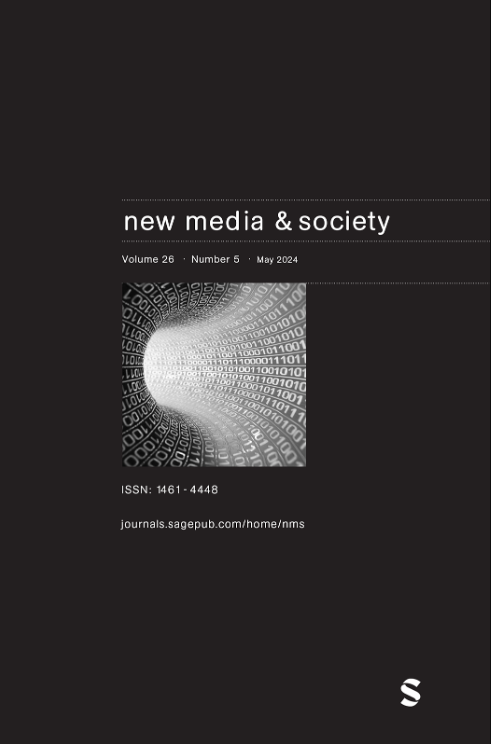Chat groups as local civic infrastructure: A case study of “Solidary neighborhood help” Telegram groups during the COVID-19 pandemic in Germany
IF 4.3
1区 文学
Q1 COMMUNICATION
引用次数: 0
Abstract
Messaging groups are emerging as “meso-spaces”—digital environments that enable sustained dialogue and collective action through their distinct affordances. We examine how such spaces facilitate civic self-organization through their hybrid online/offline, public/private, and local/global dynamics and how they function as local civic infrastructure during times of crisis. Using a mixed-methods analytical approach, we examined 47 public Telegram groups from Germany during the COVID-19 pandemic. We identified a fundamental tension between political discussion and practical help in these spaces, resolvable through active horizontal participation (including norm negotiation and self-moderation), or strict vertical moderation. Additional challenges included a lack of access to vulnerable groups and limited outreach to local civil society actors, both of which hindered group activity and structural connections within local civic infrastructure. Despite these challenges, our study highlights the potential of local chat groups for self-organization, albeit primarily among privileged urban individuals. We discuss the implications for democratic theory and practice.聊天群作为地方市政基础设施:以德国COVID-19大流行期间“团结邻里帮助”电报群为例
信息群组正在成为“中空间”——通过其独特的功能实现持续对话和集体行动的数字环境。我们研究这些空间如何通过其线上/线下、公共/私人、地方/全球的混合动态促进公民自组织,以及它们如何在危机时期作为地方公民基础设施发挥作用。使用混合方法分析方法,我们检查了COVID-19大流行期间德国的47个公共电报组。我们确定了这些空间中政治讨论和实际帮助之间的根本紧张关系,可以通过积极的横向参与(包括规范谈判和自我调节)或严格的纵向调节来解决。其他挑战包括无法接触弱势群体和与当地民间社会行动者的接触有限,这两者都阻碍了团体活动和当地民间基础设施内的结构联系。尽管存在这些挑战,但我们的研究强调了本地聊天群的自组织潜力,尽管主要是在享有特权的城市个人之间。我们讨论了对民主理论和实践的影响。
本文章由计算机程序翻译,如有差异,请以英文原文为准。
求助全文
约1分钟内获得全文
求助全文
来源期刊

New Media & Society
COMMUNICATION-
CiteScore
12.70
自引率
8.00%
发文量
274
期刊介绍:
New Media & Society engages in critical discussions of the key issues arising from the scale and speed of new media development, drawing on a wide range of disciplinary perspectives and on both theoretical and empirical research. The journal includes contributions on: -the individual and the social, the cultural and the political dimensions of new media -the global and local dimensions of the relationship between media and social change -contemporary as well as historical developments -the implications and impacts of, as well as the determinants and obstacles to, media change the relationship between theory, policy and practice.
 求助内容:
求助内容: 应助结果提醒方式:
应助结果提醒方式:


